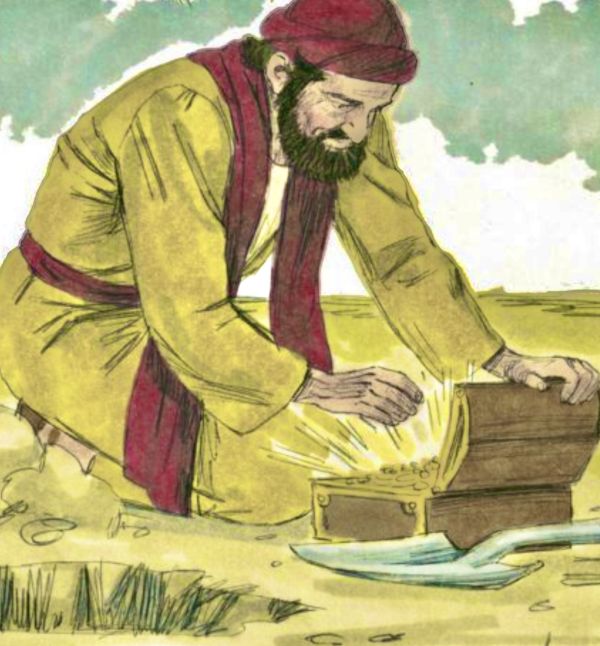Jesus speaks in parables of the Kingdom of Heaven, likened to a treasure hidden in a field for which he who finds it sells everything.
The subject of the parable about the Kingdom is also the pearl of enormous value for which the merchant who goes in search of it sells everything to buy it.
As the Sources themselves reveal, Francis' hidden Treasure was poverty not for its own sake, but for the sake of the Kingdom; conformation to the Poor Christ.
For him, Hidden Treasure for which to sell everything was the encounter with lepers, a concrete revelation of God and with whom he wanted to be often, caring for them and loving them more than himself.
Hidden treasure was also the prayer and sufferings he shared with Jesus.
The Sources attest:
"These visits to the lepers increased his goodness. Taking one of his companions, whom he loved very much, to an out-of-the-way place, he would tell him that he had discovered a great and precious treasure [...].
He often led him to a cave, near Assisi, and entered it alone, leaving his friend outside, eager to seize the treasure" (FF 1409).
"Then, loving every form of humility, he moved in with the lepers, staying with them and serving them all with great care.
He washed their feet, bandaged their sores, removed the rot from their sores and cleansed them of purulence.
He also, moved by admirable devotion, kissed their festering sores, he who would soon become the Good Samaritan of the Gospel" (FF 1045).
Again: 'And truly the immaculate bride of God is the true religion he embraced; and the Kingdom of Heaven is the hidden treasure he sought so ardently' (FF 330).
His biographer Celano continues, in the Vita Prima:
"He withdrew a little from the tumult of the world [...] and sought to keep Jesus Christ in the intimacy of his heart.
Like a shrewd merchant, he withdraws the pearl he has found from the gaze of the sceptics, and secretly endeavours to buy it with the sale of everything else' (FF 328).
The discovery of the great Gospel treasure is also attested in a short passage in the Legend of the Three Companions.
"Francis together with Aegidius went to the March of Ancona, the other two set out for another region.
Going towards the March, they exulted joyfully in the Lord. Francis, in a loud and clear voice, sang in French the praises of the Lord, blessing and glorifying the goodness of the Most High.
So great was their joy, that they seemed to have discovered a magnificent treasure in the evangelical estate of Lady Poverty, for the love of which they had generously and spontaneously disposed of all material possessions, considering them as waste" (FF 1436).
«The kingdom of heaven is like unto a treasure hid in a field; which a man having found hid; and in his joy he goeth, and selleth all that he hath, and buyeth that field» (Mt 13:44)
Wednesday of the 17th wk. in O.T. (Mt 13,44-46)












